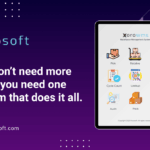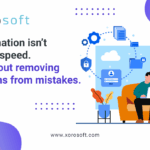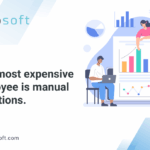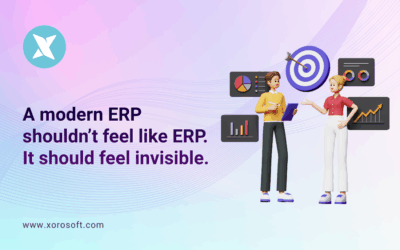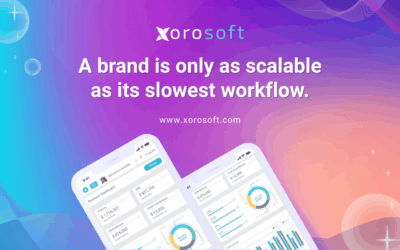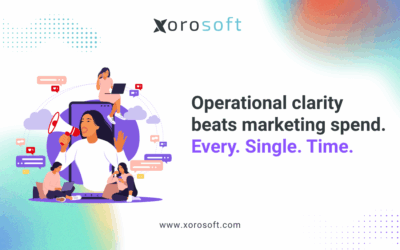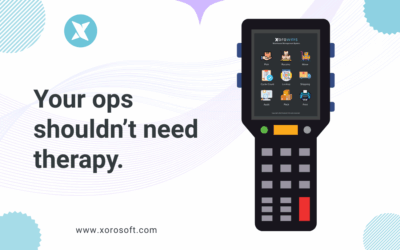
In today’s fast-paced business landscape, small businesses face numerous challenges when it comes to scaling their operations. One of the key obstacles is managing and integrating various business processes efficiently. This is where an Enterprise Resource Planning (ERP) system can make a significant difference. An ERP system is a comprehensive software solution that helps businesses streamline and automate their core processes, providing a centralized platform for managing everything from inventory and accounting to customer relationships. In this article, we will explore the benefits of implementing an ERP system specifically tailored for small businesses and how it can help overcome common challenges.
Benefits of an ERP System for Small Businesses
Implementing an ERP system offers numerous benefits for small businesses. Firstly, it provides a unified view of the entire business operation, allowing owners and managers to gain real-time insights into various aspects of their organization. This holistic view enables better decision-making and resource allocation, leading to improved efficiency and productivity. Additionally, an ERP system eliminates the need for disparate software applications, reducing complexities and costs associated with managing multiple systems. With all data in one place, small businesses can access and analyze information more easily, resulting in faster and more accurate reporting.
Moreover, an ERP system enhances collaboration and communication within the organization. By integrating different departments and functions, employees can share information seamlessly, improving workflow and eliminating bottlenecks. This leads to better coordination and alignment of resources, ultimately driving business growth. Furthermore, an ERP system automates routine tasks, freeing up employees’ time to focus on more value-added activities. This not only improves productivity but also boosts employee morale, as they are no longer burdened with mundane and repetitive tasks. Overall, an ERP system empowers small businesses to compete with larger enterprises by optimizing their operations and leveraging data-driven insights.
Common Challenges Faced by Small Businesses
Small businesses often face a unique set of challenges that can hinder their growth and competitiveness. Limited resources, including financial, human, and technological, are a significant constraint for small businesses. Additionally, managing business processes manually or using disparate systems can lead to inefficiencies, errors, and a lack of visibility into important information. For example, without a centralized system, inventory management can become complicated, resulting in stockouts or excess inventory. Similarly, manual accounting processes can be time-consuming and prone to errors, potentially impacting financial accuracy and compliance. Lastly, small businesses may struggle to provide exceptional customer service due to a lack of customer relationship management tools. These challenges can impede growth and hinder the ability to scale effectively.
How an ERP System Can Help Overcome these Challenges
Implementing an ERP system can address the challenges faced by small businesses and unlock their growth potential. For instance, an ERP system provides a comprehensive inventory management system that enables small businesses to track inventory levels accurately, automate replenishment, and streamline the supply chain. This ensures that the right products are available at the right time, minimizing stockouts and excess inventory. Additionally, an ERP system integrates with accounting functionalities, automating financial processes such as invoicing, billing, and reconciliation. This not only saves time but also improves accuracy and compliance by reducing human error.
Furthermore, an ERP system includes customer relationship management tools, allowing small businesses to manage and nurture customer relationships effectively. By centralizing customer data, businesses can personalize interactions, provide timely support, and build long-term loyalty. This enhances customer satisfaction and increases the likelihood of repeat business and referrals. Additionally, an ERP system provides analytics and reporting capabilities, enabling small businesses to gain insights into their operations, identify trends, and make data-driven decisions. By leveraging these insights, small businesses can optimize processes, reduce costs, and identify new growth opportunities.
Understanding Xorosoft ERP: Features and Capabilities
Xorosoft ERP is a leading ERP solution designed specifically for small businesses. It offers a range of features and capabilities that address the unique needs of small businesses, empowering them to scale and succeed. One key feature of Xorosoft ERP is its modular structure, allowing businesses to choose and customize the modules that best fit their requirements. This flexibility ensures that small businesses can implement an ERP system tailored to their specific needs, without unnecessary complexity or costs.
Xorosoft ERP offers modules for inventory management, accounting, sales and marketing, human resources, and more. These modules seamlessly integrate with each other, providing a unified platform for managing all aspects of the business. For example, the inventory management module enables businesses to track stock levels, automate reorder points, and optimize warehouse operations. The accounting module automates financial processes, such as billing, invoicing, and financial reporting, ensuring accuracy and compliance. With Xorosoft ERP, small businesses have access to a comprehensive suite of tools to streamline their operations and drive growth.
Key Modules of Xorosoft ERP
Xorosoft ERP offers several key modules that are essential for small businesses. The inventory management module allows businesses to track inventory levels in real-time, manage stock across multiple locations, and automate reorder points. This ensures optimal inventory levels, minimizes stockouts, and reduces carrying costs. The accounting module provides a robust financial management system, automating processes such as billing, invoicing, and accounts payable/receivable. It also generates comprehensive financial reports, enabling small businesses to monitor their financial health and make informed decisions.
The sales and marketing module of Xorosoft ERP helps small businesses streamline their sales processes, manage customer relationships, and track sales performance. It includes features such as lead management, opportunity tracking, and sales forecasting. This module also integrates with the customer relationship management functionality, allowing businesses to nurture leads, provide personalized customer experiences, and improve customer retention. Additionally, Xorosoft ERP offers a human resources module that simplifies HR processes, including employee onboarding, attendance tracking, and performance management. This module ensures efficient workforce management and compliance with employment regulations.
Enhancing Inventory Management with an ERP System
Inventory management is a critical aspect of any business, and small businesses often struggle to maintain optimal inventory levels. Xorosoft ERP’s inventory management module can greatly enhance this process. By providing real-time visibility into inventory levels and automating reorder points, small businesses can avoid stockouts and excess inventory. The system can also generate reports and analytics on inventory turnover, demand forecasting, and supplier performance, enabling businesses to make data-driven decisions and optimize their inventory management strategies. With Xorosoft ERP, small businesses can ensure that they have the right products available at the right time, improving customer satisfaction and reducing carrying costs.
Streamlining Accounting Processes with Xorosoft ERP
Manual accounting processes can be time-consuming, error-prone, and lack visibility into important financial information. Xorosoft ERP’s accounting module streamlines these processes, automating tasks such as billing, invoicing, and financial reporting. By eliminating manual data entry and reducing the risk of human error, small businesses can improve the accuracy and efficiency of their financial operations. The system also generates comprehensive financial reports, providing owners and managers with real-time insights into their financial health. Additionally, Xorosoft ERP integrates with tax software, ensuring compliance with tax regulations and simplifying the tax filing process. With Xorosoft ERP, small businesses can streamline their accounting processes, save time, and focus on strategic financial planning.
How to Choose the Right ERP Solution for Your Small Business
Choosing the right ERP solution for your small business is a crucial decision that requires careful consideration. Here are some key factors to consider when selecting an ERP system:
- Scalability: Ensure that the ERP system can accommodate the future growth of your business. It should be flexible enough to adapt to changing requirements and support increased transaction volumes.
- Customization: Look for an ERP system that allows customization to fit your specific business needs. This ensures that you can tailor the system to your unique processes and workflows.
- Integration: Consider the ERP system’s ability to integrate with other essential software applications, such as CRM or e-commerce platforms. Seamless integration enables data sharing and eliminates silos, improving overall efficiency.
- User-friendliness: Evaluate the user interface and ease of use of the ERP system. It should be intuitive and require minimal training for employees to navigate and perform tasks.
- Vendor reputation and support: Research the reputation and track record of the ERP solution provider. Look for testimonials and customer reviews to ensure that they have a history of delivering reliable solutions and providing excellent customer support.
By considering these factors and aligning them with your business requirements, you can select an ERP solution that will effectively support your small business’s growth and success.
Implementing an ERP System: Best Practices and Considerations
Implementing an ERP system requires careful planning and execution to ensure a smooth transition and successful adoption. Here are some best practices and considerations for implementing an ERP system in your small business:
- Define objectives and goals: Clearly define your business objectives and goals for implementing an ERP system. This will help guide the implementation process and ensure that the system aligns with your strategic vision.
- Engage stakeholders: Involve key stakeholders, including employees, managers, and IT personnel, in the implementation process. Their input and involvement will contribute to a successful and smooth transition.
- Data migration and cleansing: Prioritize data migration and cleansing to ensure that accurate and up-to-date data is transferred to the new ERP system. This will prevent data integrity issues and enable a seamless transition.
- Training and change management: Provide comprehensive training to employees to familiarize them with the new ERP system. Additionally, implement change management strategies to address any resistance to change and ensure a smooth adoption process.
- Continuous monitoring and improvement: Regularly monitor the performance of the ERP system and seek feedback from employees. This will help identify any issues or areas for improvement, allowing you to optimize the system and maximize its benefits.
By following these best practices and considering the unique needs of your small business, you can successfully implement an ERP system and unlock its full potential.
Conclusion: Unlocking Growth Potential with Xorosoft ERP System
Investing in an ERP system is essential for small businesses looking to scale their operations and overcome common challenges. Xorosoft ERP offers a comprehensive solution specifically designed for small businesses, providing a range of modules and features to streamline processes and drive growth. From inventory management and accounting to sales and marketing, Xorosoft ERP empowers small businesses with the tools they need to succeed. By implementing an ERP system like Xorosoft, small businesses can optimize their operations, improve efficiency, and make data-driven decisions. To unlock the growth potential of your small business, book a demo with Xorosoft today and experience the transformative power of an ERP system.


